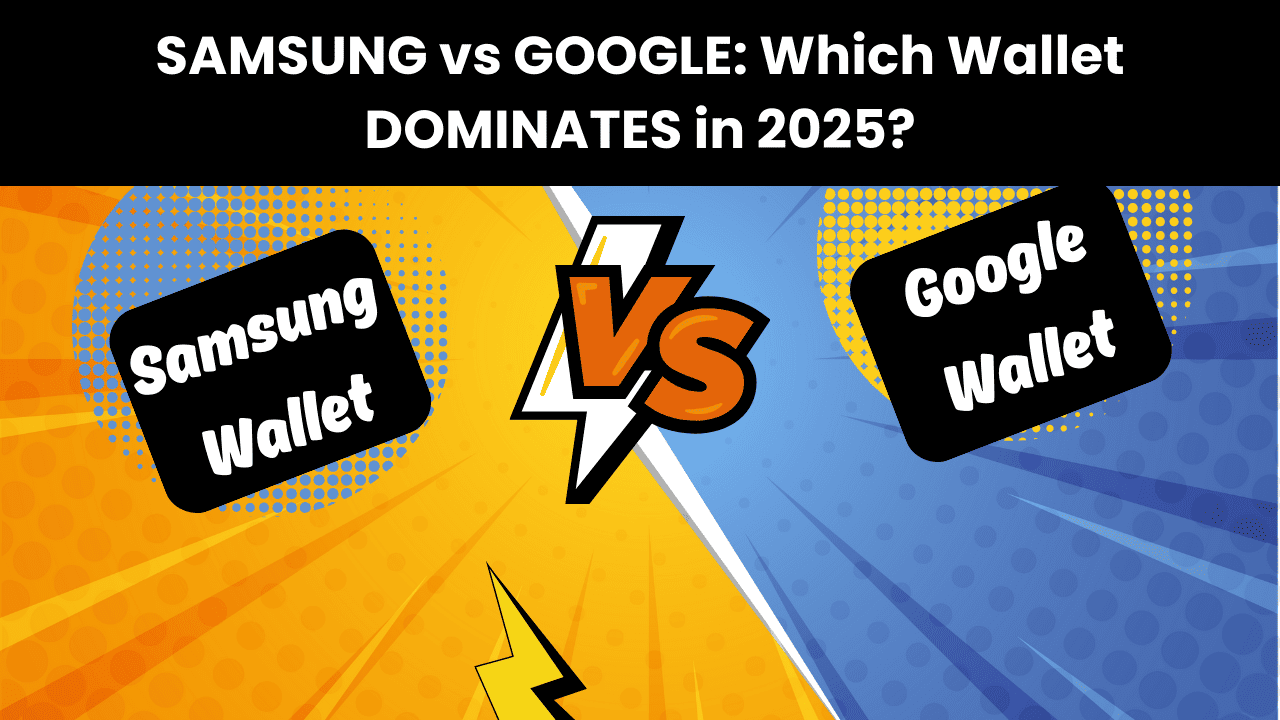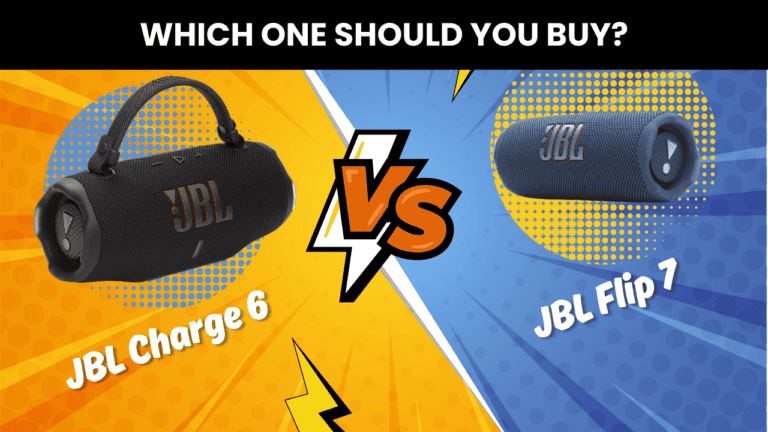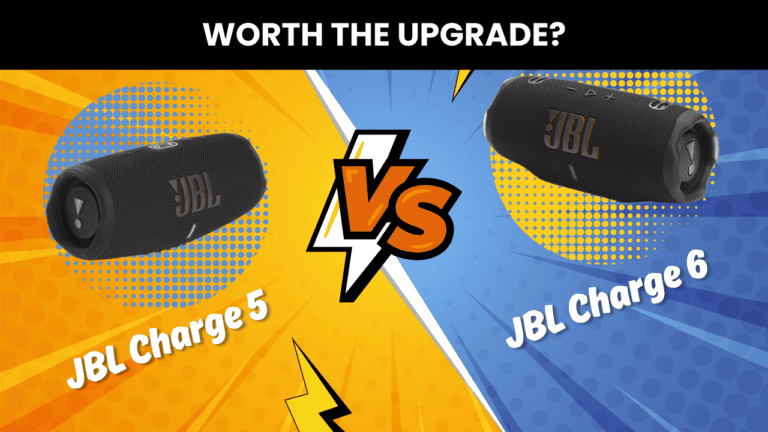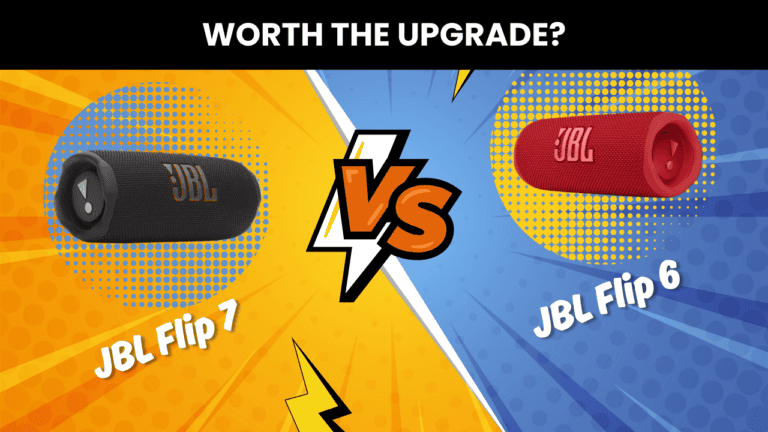In today’s increasingly digital world, your smartphone has evolved beyond a communication device into an essential financial tool. Digital wallets have transformed how we pay, store important documents, and interact with businesses. By 2025, digital wallets are expected to account for more than 50% of e-commerce transaction value globally, up from just over 40% in 2021.
If you’re an Android user, you likely face a choice between Samsung Wallet and Google Wallet. This comprehensive comparison will help you determine which digital wallet deserves a spot on your phone in 2025, examining their compatibility, core features, unique capabilities, and security measures.
Device Compatibility: Who Can Use Each Wallet?
The most fundamental difference between these wallets lies in their availability across devices.
Samsung Wallet is exclusively available on Samsung devices. This means:
- Only works on Galaxy phones (S, Note, Z, and A-series)
- Compatible with Galaxy Watch 4, 5, or 6
- Available in 29 countries worldwide
- Cannot be installed on non-Samsung Android phones
Samsung has recently expanded its wallet capabilities to more affordable devices, bringing the Tap & Pay feature to budget Galaxy phones like the M16 5G. This demonstrates Samsung’s commitment to widening access to convenient payment features across its product lineup.
Google Wallet, on the other hand, offers much broader compatibility:
- Works on virtually any Android device running Android 5.0+ with NFC
- Compatible with all Android brands (Google Pixel, OnePlus, Motorola, Xiaomi, and yes, even Samsung)
- Available in over 80 countries globally
- Works with Pixel Watch and other Wear OS devices
For global travelers, Google Wallet’s availability in more than 80 countries compared to Samsung Wallet’s 29 countries represents a significant advantage. This broader global reach makes Google Wallet a more versatile option for international users.
The verdict on compatibility is clear: Google Wallet wins by a landslide if you ever plan to switch phone brands or travel internationally.
Core Features: The Essentials
Both wallets handle the fundamental features you’d expect from a digital payment solution.
Both Samsung Wallet and Google Wallet support:
- Credit and debit cards for contactless payments
- Loyalty cards and gift cards
- Boarding passes for flights
- Event tickets
- Digital IDs and driver’s licenses (limited to certain states in the US)
- Digital car keys for compatible vehicles (BMW, Genesis, Hyundai, etc.)
Samsung Wallet creates a secure environment that allows you to make payments with your personal information well protected. It’s accepted in millions of places for purchases in stores, on the web, and with participating merchant apps.
Google Wallet similarly offers comprehensive support for various cards and passes. It can store library cards with barcodes, making it easy to access services without carrying physical cards. The app automatically enlarges barcodes and adjusts screen brightness for optimal scanning when needed.
For these core features, it’s essentially a tie. Both wallets handle the fundamentals equally well, providing secure and convenient payment options at millions of contactless terminals worldwide.
Unique Features: What Sets Them Apart
Where things get interesting is with the unique features each wallet offers.
Samsung Wallet exclusive features:
- Samsung Pass Integration: Samsung Wallet integrates Samsung Pass, which acts as a password manager for your apps and websites. This allows you to store passwords, addresses, and card details for easier online browsing and shopping.
- Blockchain Wallet: Samsung Wallet includes a Blockchain Wallet for cryptocurrency monitoring and transactions. This integration enables users to manage their virtual assets securely, store and manage major cryptocurrencies like Bitcoin and Ethereum, and send and receive virtual assets on-the-go.
- Samsung Rewards: One of the most appealing aspects of Samsung Wallet is the Samsung Rewards program, which offers points for purchases that can be redeemed for Samsung products.
- New Payment Features: Samsung is adding two significant features to its Wallet in 2025: Tap to Transfer for peer-to-peer payments (similar to Apple’s Tap to Pay but with third-party digital wallet support) and Instant Installments for buy-now-pay-later options. These features will work with Visa and Mastercard, making Samsung’s service more inclusive.
Google Wallet exclusive features:
- Transit and Parking Passes: Google Wallet supports transit passes in many cities worldwide, making it easier to navigate public transportation systems without physical tickets.
- Hotel Room Keys: The wallet works with hotel room keys at participating hotel chains, allowing you to unlock your room with just your phone.
- Family Features: As of March 2025, Google has introduced supervised access for kids through Family Link. This groundbreaking feature allows children to use Google Wallet on Android to securely tap to pay at stores and access supported passes like event tickets, library cards, and gift cards. All with parental oversight. Parents can manage available cards, track purchases, and receive email alerts for transactions.
- Deeper Google Integration: Google Wallet integrates more deeply with other Google services like Gmail and Google Maps for automatic pass and reservation imports. When you receive a boarding pass or event ticket via email, it can be automatically added to your Google Wallet.
For unique features, your choice depends on your priorities. Samsung for rewards and crypto capabilities, Google for transit features and family controls.
Security: Keeping Your Digital Assets Safe
Security is critical for digital wallets, and both companies take this seriously.
Samsung Wallet Security Features:
Samsung Wallet goes to great lengths to safeguard your privacy, using several specialized security methods:
- Tokenization: This replaces your sensitive payment card information with a device-specific ‘Token’ that acts as a surrogate value, protecting your payment information and reducing security risks.
- Samsung Knox: This system constantly monitors and protects your phone from malware and other threats. It includes a security design where highly sensitive operations and information are kept in a “secure environment” on your phone’s memory, inaccessible to normal applications or malware.
- Biometric Authentication: Each transaction requires authentication via fingerprint, PIN, or iris scan before the information can be sent to the payment terminal.
- Remote Disable: If your phone is lost or stolen, you can remotely disable Samsung Wallet to prevent unauthorized use.
Google Wallet Security Features:
Google Wallet employs similar robust security measures:
- Tokenization: Like Samsung, Google Wallet uses tokenization to ensure your actual card numbers are never shared with merchants.
- Biometric Authentication: Payments require fingerprint, facial recognition, or PIN verification.
- Enhanced Privacy Controls: As of March 2025, Google has added features allowing users to completely delete all data stored in Google Password Manager, providing greater control over sensitive information.
- Remote Disable: Google Wallet can be disabled remotely if your device is lost or stolen.
Both wallets use advanced encryption to protect your financial information during transactions. The digital wallet encrypts your personal data, and the hardware provides the essential functionality to transfer data securely from your device to the merchant.
For security, it’s another tie. Both provide excellent protection for your digital payment information with multiple layers of security.
The Benefits of Digital Wallets in 2025
Beyond the specific features of Samsung and Google Wallet, digital wallets in general offer significant advantages in 2025:
- Customer Convenience: Transactions accessible through smartphones allow you to make payments, transfer money, and shop online without carrying physical cards or cash.
- Contactless Transactions: In a world increasingly focused on hygiene post-COVID-19, contactless payments through digital wallets provide a safer option compared to handling physical currency.
- Faster Transactions: Digital wallets facilitate instant transactions, eliminating the need for manual input and reducing waiting times.
- Encrypted Financial Information: Advanced security measures ensure that your financial information remains encrypted and protected against potential breaches.
- Expense Tracking: Wallets often come with budgeting tools and expense-tracking features, helping you maintain better control over your spending.
- Reward Programs: Many digital wallets offer rewards, discounts, and cashback incentives, making transactions more cost-effective.
- Financial Inclusion: Digital wallets can extend financial services to individuals who lack access to traditional banking infrastructure.
Potential Drawbacks to Consider
While digital wallets offer numerous benefits, they do have some limitations:
- Technology Dependency: Digital wallets rely heavily on technology and connectivity. A lack of internet access or technical glitches can hinder their usability.
- Security Concerns: While security measures are in place, digital wallets can still be vulnerable to hacking and cyberattacks, potentially compromising financial data.
- Limited Acceptance: Not all merchants and vendors accept digital wallet payments, limiting their usability in certain situations.
- Transaction Fees: Some digital wallet services may charge transaction fees, particularly for cross-border transactions or transferring funds between different wallets.
The Verdict: Which Wallet Should You Choose?
After comparing Samsung Wallet and Google Wallet across these four key areas, here’s my recommendation:
Choose Samsung Wallet if:
- You’re committed to the Samsung ecosystem
- You value the rewards program for Samsung products
- You’re interested in cryptocurrency monitoring and transactions
- You prefer having password management integrated
- You want to use the upcoming Tap to Transfer and Instant Installments features
Choose Google Wallet if:
- You switch between different Android brands
- You need wider global availability
- You want transit/parking pass support
- You need family features like supervised access for kids
- You prefer deeper integration with other Google services
The good news for Samsung users is that you can actually have both wallets installed on your device and test them yourself to see which one works better for your specific needs.
The Future of Digital Wallets
Looking ahead, digital wallets are set to become even more central to our financial lives. By 2025, we can expect to see:
- Biometric Authentication Advancements: The global biometric market is projected to grow from $43.54 billion in 2021 to $150.59 billion by 2030, with a compound annual growth rate of 14.8%. This indicates that biometric technology will continue to develop rapidly and play an important role in digital payments.
- Expanded Contactless Payment Technology: By 2025, contactless payment technology will be present in more scenarios. Additionally, emerging payment forms such as voice payments and in-car payments will further enrich the ecosystem of digital wallet usage.
- Blockchain and Cryptocurrency Integration: Blockchain technology, with its decentralized, transparent, and tamper-proof characteristics, provides new possibilities for digital wallets. Cryptocurrencies are reshaping traditional payment methods, and central banks worldwide are actively exploring Central Bank Digital Currencies.
- Rise of Super-Wallets: By 2025, “super wallets” that encompass various functions such as social networking, ride-hailing, food delivery, loans, and investments are expected to emerge in more regions worldwide. These one-stop service models greatly benefit consumers by allowing them to fulfill most daily needs within a single app.
Conclusion
In 2025, digital wallets have revolutionized the way we pay, offering unparalleled convenience, security, and efficiency. The choice between Samsung Wallet and Google Wallet ultimately depends on your specific needs, device preferences, and the features you value most.
Google Wallet edges out Samsung Wallet for most Android users due to its broader compatibility and more versatile feature set. However, Samsung users deeply invested in the ecosystem will find Samsung Wallet offers excellent integration with their existing devices and services, along with unique features like cryptocurrency support and the rewards program.
As digital wallets continue to evolve, both Samsung and Google are likely to introduce even more innovative features to enhance the user experience. Whichever wallet you choose, you’ll be embracing a more convenient, secure, and efficient way to manage your finances in our increasingly digital world.




